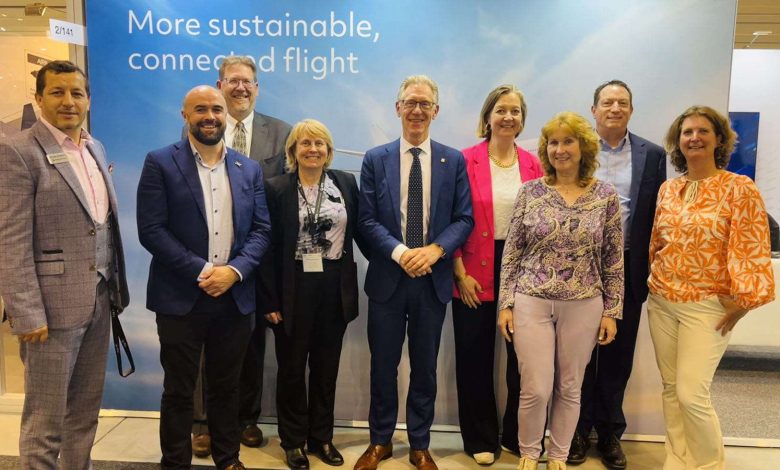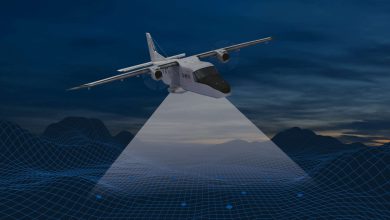
DELFT, Netherlands (September 16, 2024) – Collins Aerospace, Pratt & Whitney, and Delft University of Technology have established a comprehensive research collaboration agreement (CRA) that promotes joint efforts across a range of eco-friendly aviation research projects, including advanced materials, hydrogen propulsion, state-of-the-art manufacturing, and industrial design. Within the strategic framework of the CRA, Collins Aerospace and Pratt & Whitney will embark on numerous research initiatives involving TU Delft graduate research facilities, scholars, and personnel over the next five years. Collins Aerospace and Pratt & Whitney are subsidiaries of RTX.
“Collaborations between RTX engineers and academic research institutions are crucial for improving our understanding of cutting-edge technologies, while simultaneously cultivating the next generation of talent that will drive our industry forward,” remarked Michael Winter, RTX Chief Science Officer. “Our CRA with TU Delft – our first agreement with a European academic institution – seeks to promote advancements that enhance sustainable aviation, which is vital for the future of our sector.”
Among the initial projects launched under the CRA, Collins and TU Delft are collaborating on a high-speed intelligent inspection system designed to streamline manufacturing processes for lightweight and recyclable aircraft materials. Pratt & Whitney, in partnership with TU Delft, will develop innovative engine designs that utilize thermal energy recovery technologies to improve fuel efficiency and reduce CO2 emissions for commercial aircraft.
“We’re excited and delighted to formalize this new partnership. It provides us with the opportunity to deepen our collaboration on sustainable aviation with the engineering teams of Collins Aerospace and Pratt & Whitney,” commented Professor Henri Werij, Dean of the Faculty of Aerospace Engineering at TU Delft. “Cooperation with leading aerospace companies is absolutely critical to making significant strides towards achieving climate-neutral aviation by 2050.”
The new research collaboration enhances a long-standing relationship between Collins, Pratt & Whitney, and TU Delft, including involvement in European framework programs such as Clean Aviation. Through this, Collins and TU Delft are engaged in the COCOLIH2T project, which focuses on developing technologies for storing liquid hydrogen fuel on commercial aircraft. The firms support TU Delft’s aerospace student association VSV Leonardo da Vinci, provide facilities, and sustain a close connection with the Aerospace Innovation Hub at TU Delft, alongside regular internship opportunities at Collins Aerospace’s aircraft interiors development center in Houten, Netherlands.
TU Delft: impact for a more sustainable society.
TU Delft in the Netherlands hosts one of the world’s most extensive and esteemed academic and innovation ecosystems dedicated to sustainable aviation. Across all eight faculties – including the specialized faculty of Aerospace Engineering – initiatives focus on sustainable aviation, encompassing sustainable production, maintenance, and circular life cycles of aircraft, highly energy-efficient designs, propulsion technologies and energy carriers, green ATM, sustainable airports, multimodal transport, and foundational research on climate impacts on the system. This enables us to tackle the reduction of the climate impact of the entire aviation system from a holistic viewpoint. The university accommodates over 26,000 Bachelor and Master students, among which nearly 3,000 are Aerospace Engineering students, supported by close to 8,000 staff members.










